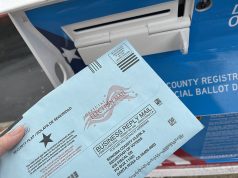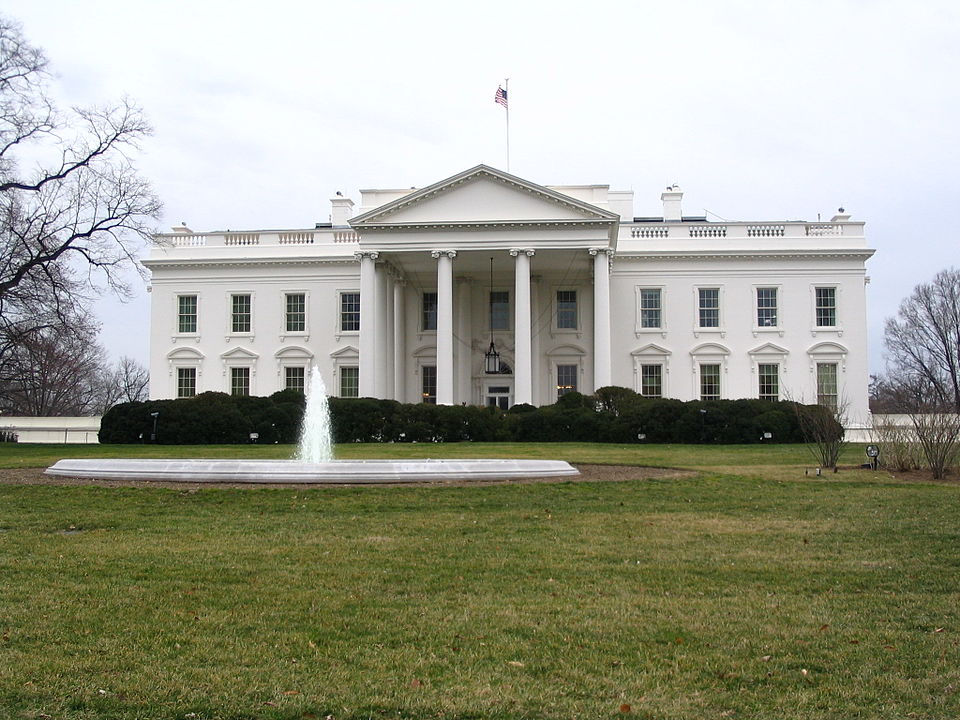A second federal judge moved to block President Donald Trump’s executive order ending birthright citizenship Wednesday.
Judge Deborah Boardman, a Biden appointee, ruled that the order is likely unconstitutional. This marks the second time a federal court has blocked the policy. The nationwide injunction is slated to remain in place while the case is adjudicated.
Boardman said the civil rights group plaintiffs, five pregnant women whose children would not be granted citizenship under the order, were likely to succeed on the merits. The plaintiffs are represented by the CASA and the Asylum Seeker Advocacy Project.
Trump’s executive order seeks to deny U.S. citizenship to children born in the country unless at least one parent is a U.S. citizen or lawful permanent resident. The administration argues that children of undocumented immigrants and temporary visa holders are not “subject to the jurisdiction” of the United States, a reinterpretation of the 14th Amendment.
In January, U.S. District Judge John Coughenour temporarily blocked President Donald Trump‘s executive order aimed at ending birthright citizenship, deeming the presidential directive “blatantly unconstitutional.” (RELATED: Republican Attorneys General Back Trump’s Executive Order On Birthright Citizenship)
Trump signed Executive Order 14156, titled Protecting the Meaning and Value of American Citizenship, on his first day in office. The order seeks to end birthright citizenship for children born in the U.S. to noncitizen parents, but it has already encountered significant legal pushback.
Judge Coughenour issued a restraining order against its implementation, siding with several states that argued the executive action violates the 14th Amendment and contradicts long-standing Supreme Court rulings.
The executive order was set to take effect in February, marking a bold attempt to reshape the interpretation of the 14th Amendment, which has guaranteed citizenship to nearly all individuals born on U.S. soil since its ratification in 1868. Many legal experts, however, argue that any effort to alter this constitutional guarantee would require far more than an executive order.
The Supreme Court decision in United States v. Wong Kim Ark (1898) affirmed that the 14th Amendment grants citizenship to nearly all individuals born in the U.S., regardless of their parents’ nationality. This precedent has formed the legal backbone of birthright citizenship for over a century.







Great. Leave it alone.
At least until our birth rate starts going up. If at all.
Focus on the deficit instead.
Why are so many of these appointed judges of foreign decent or even foreign born?
It seems they always make their decision to damage our USA culture, and customs.
They seem to all be DEMONcraps(socialists/communists)
Liberalism is a mental disease that will destroy us.
Trump is correct! I don’t see anything in the Constitution that talks about foreigners coming to this country just to drop a kid then bring their entire family. They want to come here, do it the correct way and apply to immigrate.
The birthright citizenship was way back in our history and it was for the blacks that were sent to America as slaves. I don’t believe that those crossing our borders illegally and having children should be given citizenship. No way.
The Leftist judges will try everything in their power to do the bidding of the crooked Democrat party.
Likely Unconstitutional? She already admitted that it is Constitutional! Helen E Sanders comment was also correct. This liberal appointed Judge should be thrown off the bench!
For decades the Chinese government has daily been sending large jet aircraft specially equipped with baby gear from China to Californa where the 8 month pregnant mothers are taken to birthing centers run by Chinese Doctors to have thier babies. Three to Four days after birth they are returned on the same aircraft headed back to China as Dual citizens of both China and the USA. Why do they do this, simple, 1. They are US Citizens and get cheaper education., 2. They get better medical care here for something major, 3. the babies once grown and of age can come back as sleepers in the event of a war with China. There are probably more reasons as well.
Can you imagine a large Airbus or Boeing full of babies flying from Californa all the way to China every day? Now you know why its specially equipped.